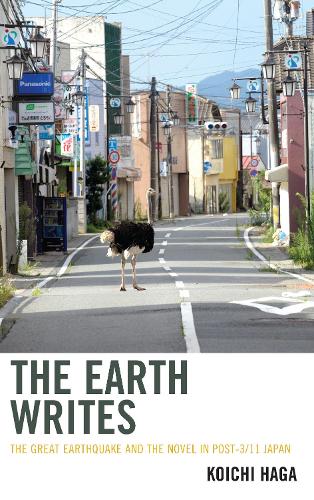
The Earth Writes: The Great Earthquake and the Novel in Post-3/11 Japan
(Hardback)
Available Formats
Publishing Details
The Earth Writes: The Great Earthquake and the Novel in Post-3/11 Japan
By (Author) Koichi Haga
Bloomsbury Publishing PLC
Lexington Books
16th January 2019
United States
Classifications
Professional and Scholarly
Non Fiction
Literary studies: from c 2000
Nature and the natural world: general interest
895.6360936
Physical Properties
Hardback
148
Width 160mm, Height 230mm, Spine 17mm
367g
Description
This book extensively analyzes the literary works of fiction that draw on the Great East Japan Earthquake and Tsunami that occurred on March 11, 2011. This disaster inspired literally hundreds of fictional works in Japan from the time of the events through 2017. This response represents a unique and perhaps unprecedented cultural phenomenon in the world. Since a variety of writers in different genres, and even amateurs, have written and published books inspired by their experiences of the disaster, it is extremely difficult to cover the entire body of Japanese post-3.11 literature. Because of the breadth of this literary response, there is a scarcity of research on the subject available. This book offers the first comprehensive review of Japans recent post-disaster literary production to the English audience.
Reviews
Haga shows how the massive earthquake of 3-11 unleashed not only a calamitous tsunami and the man-made nuclear disaster of Fukushima, it also shook to the foundations the form and content of contemporary Japanese fiction. Based on extensive research, the book is filled with fascinating insights that reveal the complex ways Japanese writers are reimagining what it means to live as humans on our volatile planet. -- Michael K. Bourdaghs, University of Chicago
Koichi Hagas study of post-3.11 literature in Japan provides a fascinating and necessary glimpse for western readers into the Japanese experience of ecoprecarity in the wake of one of the most devastating natural-technological disasters in recent memory. While the March 2011 earthquake, tsunami, and subsequent nuclear meltdown received widespread attention, the cultural ramifications and interpretations of these eventsand the lessons about nuclear risk that we can learn from this predictable and yet unexpected crisishave scarcely been contemplated outside of Japan. I find this book to be a valuable contribution to risk criticism and ecocriticism. -- Scott Slovic, University of Idaho, coeditor of The Routledge Handbook of Ecocriticism and Environmental Communication
Author Bio
Koichi Haga is associate professor of Japanese and Comparative Literature at Josai International University in Japan.
